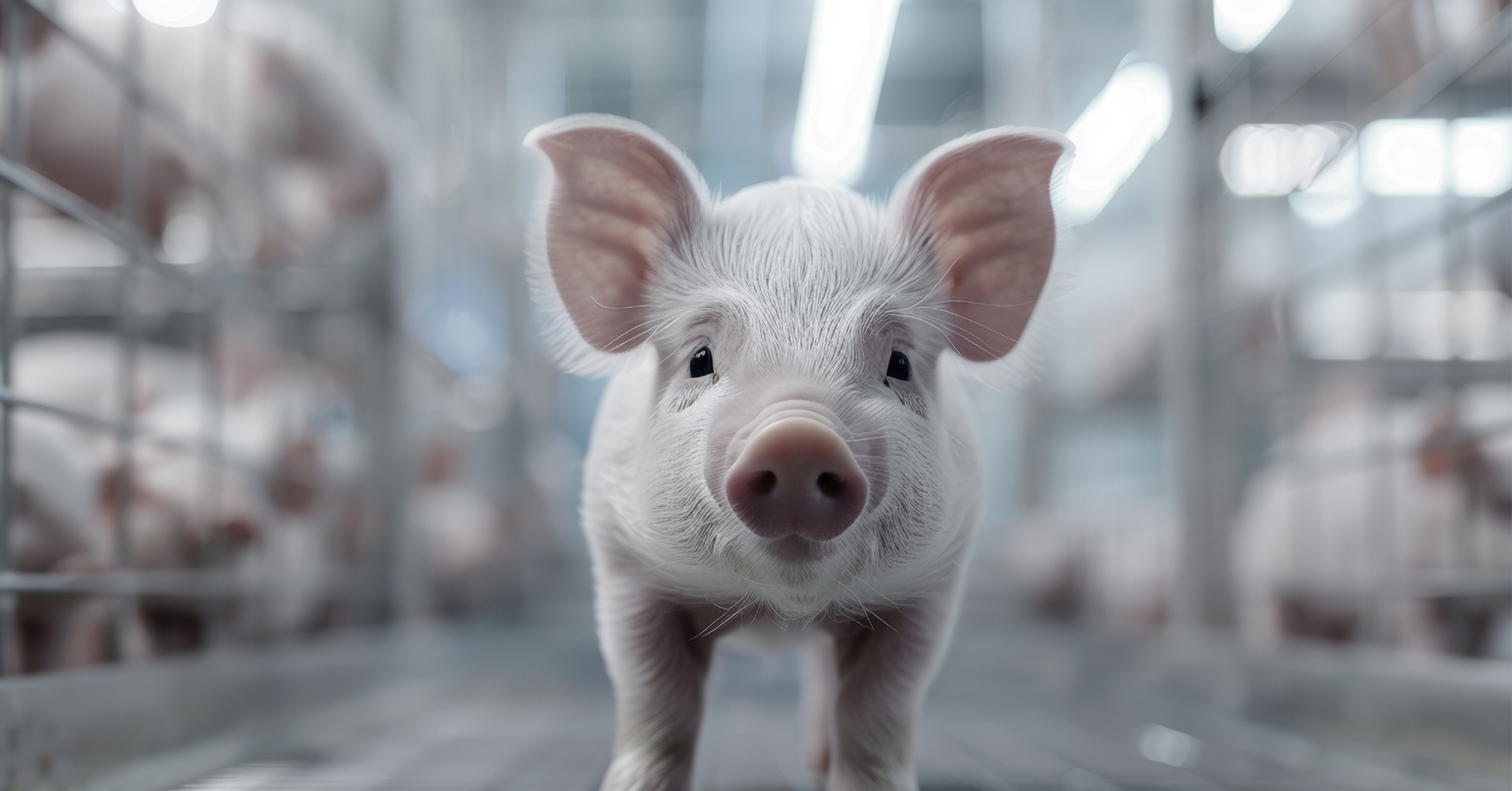
Per Industry, There Is “Luxury” in Being “Grown” for Organs
Last month, we wrote about the practice of transplanting pig organs into humans, and last week, we wrote about the selective breeding and gene editing of farmed animals.
Recent events have combined the two topics into a harrowing “celebration” of gene-edited pigs being raised and killed to transplant their organs into baboons and humans.
Mainstream media has published a widely promoted article about “special research” taking place “in the Blue Ridge mountains – behind locked gates” at a biotech company called Revivicor: “a spinoff company of PPL Therapeutics (the company that cloned Dolly the sheep . . . )” that is owned by United Therapeutics and seeks to “spearhead[] technology to transplant pig hearts into humans”.
Revivicor has been torturing pigs for decades, having “cloned their first pig in 2000”, gene-edited their first “litter” in 2019, and provided the hearts used for this year’s infamous pig-to-human transplants. (And, additionally – though not “a food company” – Revivicor “keep[s] its [pig] numbers in check” by sending some of its pigs to a slaughterhouse and, then, “mail[ing]” out their body parts to humans for consumption.)

Harkening back to animal researchers’ admission that “public perception” is a primary barrier to greater xenotransplantation support (i.e., funding), the coverage of this grotesque practice relies on myriad, thinly-veiled distractions from its truths.
That is, the language used is inappropriate but strategic, seeking to distance our minds from the recognition of pigs as sentient beings; xenotransplantation as a practice that relies on breeding, exploiting, and killing animals for their body parts; and animal commodification as cruel and unethical.
More specifically, the coverage suggests that:
- Pigs are just like, say, handbags – both “designer” and “custom” creations brought to life by the company’s “head of porcine technology”, relying on specific manufacture (in this case, the “inactiv[ation] of four pig genes” and the addition of “six human genes”), and bearing tags to “identify their genetics”.
- Raising pigs is just like, say, growing plants – with humans “growing” them to a particular size before taking their organs.
- Harvesting pigs’ organs is just like, say, using an arcade’s claw machine – both rely on “retriev[ing]” what you’re after.
- The victim pigs are willing participants in their own exploitation – “waiting” to be forcibly implanted with embryos (grown from “hundreds of eggs retrieved from sow ovaries” by slaughterhouse workers and, then, genetically modified by researchers) and “giv[ing] as many organs as [they have]”.
- The pigs are living in “‘luxury’” among “rolling hills” – inside a “pharmaceutical plant” that’s “nestled” among these hills and represents a “$75 million”, “massive first-of-its kind building [that] bears no resemblance to a farm” and at which there is “no rolling around in the mud”.

This, afterall, is what the industry (and its media partners) do: distract, deceive, and straight-up lie. So, it comes as little surprise that, in adding the proverbial cherry atop their obscenely disingenuous yet carefully constructed facade, researchers excitedly tout the possibility of an “‘unlimited supply’ of organs”.
As we know, this concoction is no more an honest representation of reality than any of their others – the answer to human organ shortages does not lie in xenotransplantation.
Scratch the surface, and we see clearly that the only things in unlimited supply are – and will remain – human violence against nonhuman animals and the animal industrial complex’s whitewashing of one of humanity’s gravest atrocities.
Instead of allowing scientists to steal animals’ organs, let’s all do our part to save lives. According to the U.S. Health Resources & Services Administration, a single human organ donor can save the lives of up to eight others. Your simple, selfless act is one that could save the lives of humans and non-human animals. If you’re not already an organ donor, please become one now.
Save Lives: Become an Organ Donor
Share this page on Facebook or X (Twitter)